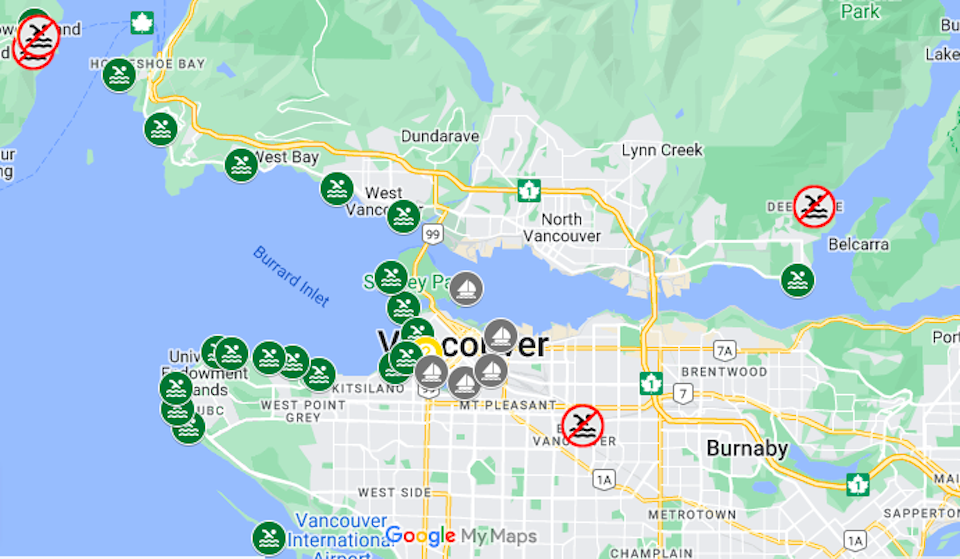Locals looking to hit local beaches this summer might want to ensure they check more than just the weather report.
Vancouver Coastal Health (VCH) maintains a map that shows beaches that are not safe for swimming due to the presence of E. coli, a bacterium commonly found in the intestinal tract of animals and humans.
High counts of E. coli in recreational water may increase the chances of gastrointestinal, upper respiratory illnesses, and skin/eye infection.
Metro Vancouver performs the sampling for the beach operators and sends them to an approved laboratory for analysis. VCH reviews the results and posts them on its website.
You shouldn't swim or wade in a place with an advisory until it is removed. Seniors, infants and children and people with weakened immunity are the most susceptible.
There are currently four water advisories in effect in the VCH region: Trout Lake, Sandy Beach, Snug Cove, and Deep Cove.

E. coli at Vancouver Beaches: Water Quality Map
VCH's water quality map shows places that are safe for swimming, places that are not "regularly sampled," places that are not suitable for swimming with an advisory in effect, and places where there is no swimming and the beach is closed.
Beaches that are closed are different than ones that have water quality advisories; no one should swim at a closed beach.
The following are examples of events that could lead to the closure of the beach:
-
Chemical, oil, sewage or other waste spills
-
Waste water treatment plant bypasses
-
Red tides or blue green algae blooms
-
Fish or other wildlife die-off at the beach
-
Visible debris, metal, or sharp objects found in the water or beach area
Beaches that are not routinely sampled are not shown on the map.
What causes E. coli contamination?
Stormwater runoff can include contamination from recreational vehicles, animal waste and sewer overflows. Other possible sources are leaking septic tanks and discharge from boats.
VCH also recommends that you don't swim at the beach for at least 48 hours after heavy rainfall because bacteria levels may be elevated.
Tips to keep safe at the beach
To protect yourself while swimming, VCH recommends the following:
-
Avoid swallowing water
-
Avoid swimming with an open cut or wound
-
Avoid swimming for 48 hours after a significant rainfall
-
Avoid swimming in murky/turbid water
-
Stay away from the water if you are experiencing digestive or intestinal problems
-
After swimming, wash your hands before handling food
After swimming, rinse off well using soap and clean water, paying special attention to any cuts or scrapes. Dry out your ears.
Visit the Fraser Health Authority for E. coli contamination information for other beaches in Metro Vancouver and the Fraser Valley.




